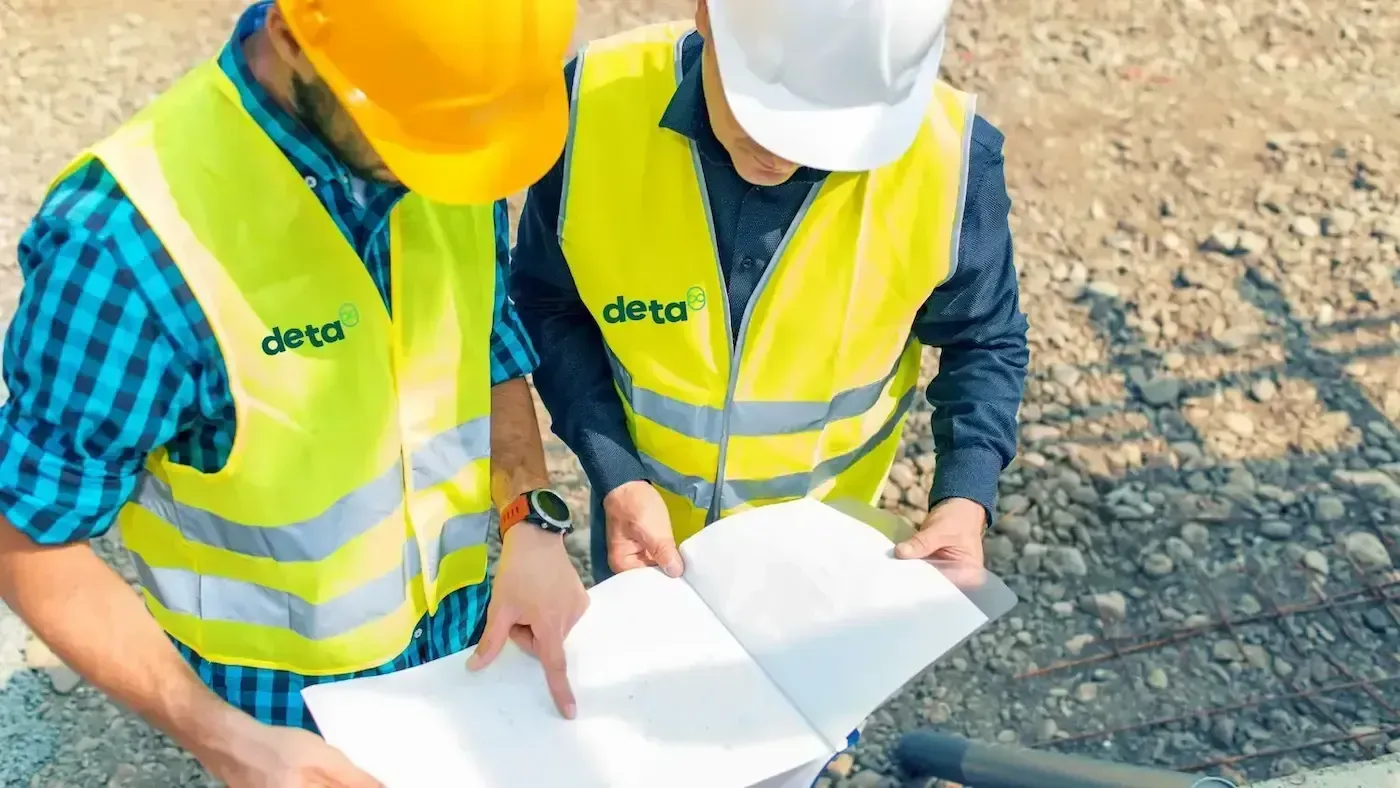Watt’s the plan? How energy management transforms industry
Have you noticed the shift in how we think about energy in business? Energy is no longer a utility expense on a spreadsheet; it's a strategic resource that can make or break your profit margin. As energy costs fluctuate and sustainability pressures mount, businesses across New Zealand, Australia and the Pacific are discovering that smart energy management is the key to unlocking operational excellence, cost savings, and environmental compliance.
But what exactly does effective energy management look like, and how can it transform your industrial operations?
The power of strategic energy management
Energy typically represents one of the largest controllable expenses for industrial operations. Yet many businesses continue to view it as a fixed cost rather than an opportunity for strategic advantage. The reality is that comprehensive energy management has the power to deliver transformative benefits across your entire operation.
When implemented effectively, energy management strategies don't just reduce utility bills - they create ripple effects throughout your business ecosystem, enhancing productivity, reducing maintenance costs, extending equipment lifespans, and strengthening your brand's reputation as an environmentally responsible operator.
Not just saving money: the many advantages of energy management
Financial advantages
The most enticing benefit of energy management is straightforward cost reduction. By identifying inefficiencies, eliminating waste, and optimising consumption patterns, businesses typically see energy cost reductions of 10-30%. For energy-intensive industries, this translates to a significant amount of money and improvements.
A Christchurch manufacturing plant recently worked with energy efficiency consultants to implement a comprehensive energy management program. The result? A 22% reduction in energy costs within the first year, with minimal capital investment. The savings came primarily from optimising existing systems rather than purchasing new equipment.

Operational excellence
Beyond pure cost savings, energy management drives operational improvements that enhance overall business performance:
Reduced downtime: energy-efficient equipment typically experiences fewer failures and requires less maintenance.
Enhanced production consistency: stable energy systems lead to more consistent product quality and output.
Improved process control: real-time energy monitoring provides deeper insights into production processes, and related process optimisation opportunities.
Extended equipment lifespan: optimised energy usage reduces strain on machinery and extends useful life.
Sustainability credentials
With increasing regulatory pressure and consumer demand for sustainable practices, energy management serves as the cornerstone of effective carbon management strategy. By reducing energy intensity, businesses can:
- Demonstrate meaningful progress toward decarbonisation goals
- Meet increasingly stringent regulatory requirements
- Enhance brand reputation with environmentally conscious customers
- Prepare for future carbon pricing mechanisms
The technology revolution in energy management
Today's energy management goes far beyond simply turning off lights or replacing inefficient equipment. Modern energy management services leverage advanced technologies to deliver unprecedented visibility and control:
Smarter data-driven decision making: the integration of IoT sensors, advanced metering, and AI-powered analytics allows for granular monitoring of energy consumption patterns. This enables:
- Real-time visibility into energy usage across different processes and equipment.
- Identification of anomalies that identify waste or impending equipment failure.
- Data-backed prioritisation of energy efficiency investments.
- Verification of energy savings following improvement initiatives.
Predictive and preventive approaches: rather than reacting to energy waste after it occurs, modern energy management takes a predictive approach:
- AI algorithms identify patterns that precede efficiency losses.
- Automated systems adjust parameters in real-time to maintain optimal efficiency.
- Preventive maintenance schedules are optimised based on actual equipment performance.
- Energy demand is matched with the most cost-effective supply options minute-by-minute.

From analysis to application: the energy optimisation process
Effective energy management begins with a comprehensive energy audit—a systematic assessment of how energy flows through your facility and where inefficiencies occur. The energy audit forms the foundation of effective energy management by establishing baseline consumption patterns across your facility. This crucial first step allows energy consultants to identify low-hanging fruit for immediate savings while simultaneously developing a prioritised roadmap for long-term improvements.
The process doesn't end with recommendations - creating robust measurement protocols ensures all implemented changes deliver verifiable savings. This systematic approach transforms energy management from guesswork to precision, enabling businesses to track progress, validate investments, and continuously refine their strategy for maximum operational and financial impact.
Following the audit, implementation typically follows a phased approach:
- Phase 1: Operational improvements requiring minimal investment.
- Phase 2: Equipment upgrades and system optimisations with short payback periods.
- Phase 3: Integration of renewable energy and more capital-intensive improvements.
- Phase 4: Continuous monitoring and optimisation.
Finding the right partner to help make tomorrow better
While some aspects of energy management can be handled internally, partnering with energy consultants in NZ or Australia provides access to expertise, technology, and resources to accelerate results.
DETA’s sustainability consulting services bring deep industry-specific knowledge that allows for tailored solutions to address your organisation’s unique operational challenges. We have valuable experience across a wide variety of sectors and facilities and exploit the data to anticipate obstacles and implement proven strategies.
Our professional sustainability consultants provide access to specialised monitoring and analysis tools that deliver actionable insights beyond what standard systems can offer, which combined with the knowledge of available incentives and funding opportunities, we are perfectly placed to maximise your return on investment while minimising upfront costs, maintaining operational excellence while advancing sustainability goals.

All together now: the integrated sustainability approach
While energy management forms the cornerstone of most industrial sustainability efforts, leading businesses are taking a more integrated approach that encompasses:
- Water and wastewater management: reducing consumption and enhancing treatment processes
- Material efficiency: minimising waste and implementing circular economy principles
- Supply chain optimisation: extending sustainability initiatives beyond facility boundaries
- ESG performance improvement: addressing broader environmental, social, and governance factors
The path forward towards sustainability
As energy prices continue to rise and environmental regulations tighten, proactive energy management isn't just good practice - it's essential for business competitiveness and resilience.
Working with experienced sustainability consultants like DETA offers a proven path to transforming energy from a cost centre to a strategic advantage. Our comprehensive approach combines deep technical expertise with practical industrial project management experience to deliver measurable, sustainable improvements.
Don't let energy inefficiency drain your competitiveness. Connect with DETA's team of energy and sustainability experts to discover how strategic energy management can transform your industrial operations. We do warn you though, once you have taken the first steps towards sustainability, you’ll find it hard to turn back. The benefits, cost savings, improved efficiency, and a stronger competitive edge, quickly become indispensable. Let DETA help you make sustainability a driving force in your success. Contact your local DETA office for more information.





